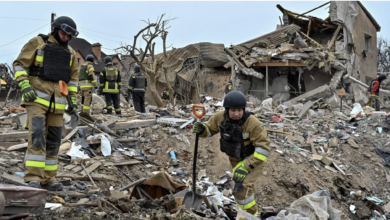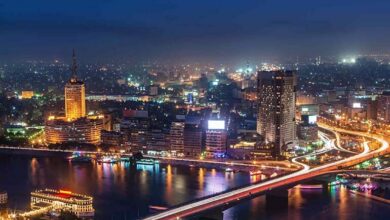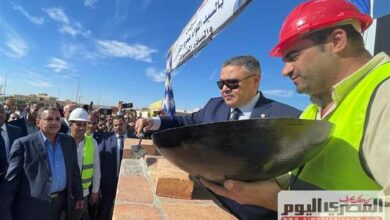“Hurghada will be under electronic surveillance,” stated Governor of the Red Sea governorate Ahmed Abdallah, as he announced that last month’s agreement with the Telecommunications Ministry to install 420 surveillance cameras in the resort town would be supplemented and expedited.
Cameras are to be installed both inside and outside of resorts, at beaches and in main streets & squares’ traffic lights.
The cameras will all be linked to an electronic monitoring center and the Hurghada police department.
Additional cameras are to be set up across neighboring towns in the Red Sea governorate.
The Ministry of Tourism has also demanded that hotel resorts install electronic gates to tighten screening measures and make sure that guests enter resorts through main gates only.
The tightening of security measures in the Red Sea governorate comes following an attack on Friday in which a man armed with a large knife killed two German tourists and wounded four others on a hotel beach in Hurghada.
Since the attack, Governor Abdallah has ordered that non-guests be banned from resort beaches and that hotels cancel day-use services.
The amount of security personnel at local hotels and establishments has been increased, as has the number of secure check-in devices.
Cars stopping within the vicinity of resorts are to be investigated.
“The measures are being implemented to prevent crimes before they happen,” tourist sector staff have claimed.
According to Egyptian tourism investors and workers in the sector, no hotel reservations have been cancelled since the attack.
Ehab Shoukry, the chairman of the steering committee of the Business Chamber of tourism companies in the Red Sea, however, said that the potential negative impact of Friday’s attack won’t hit for another two weeks, when new tourists would start booking.
The ministry of tourism had announced that the number of tourists coming to the country in the first three months of 2017 jumped 51 percent compared to the previous year.
The industry, a crucial source of hard currency, has faced years of political turmoil since the former president, Hosni Mubarak, was ousted in 2011.




